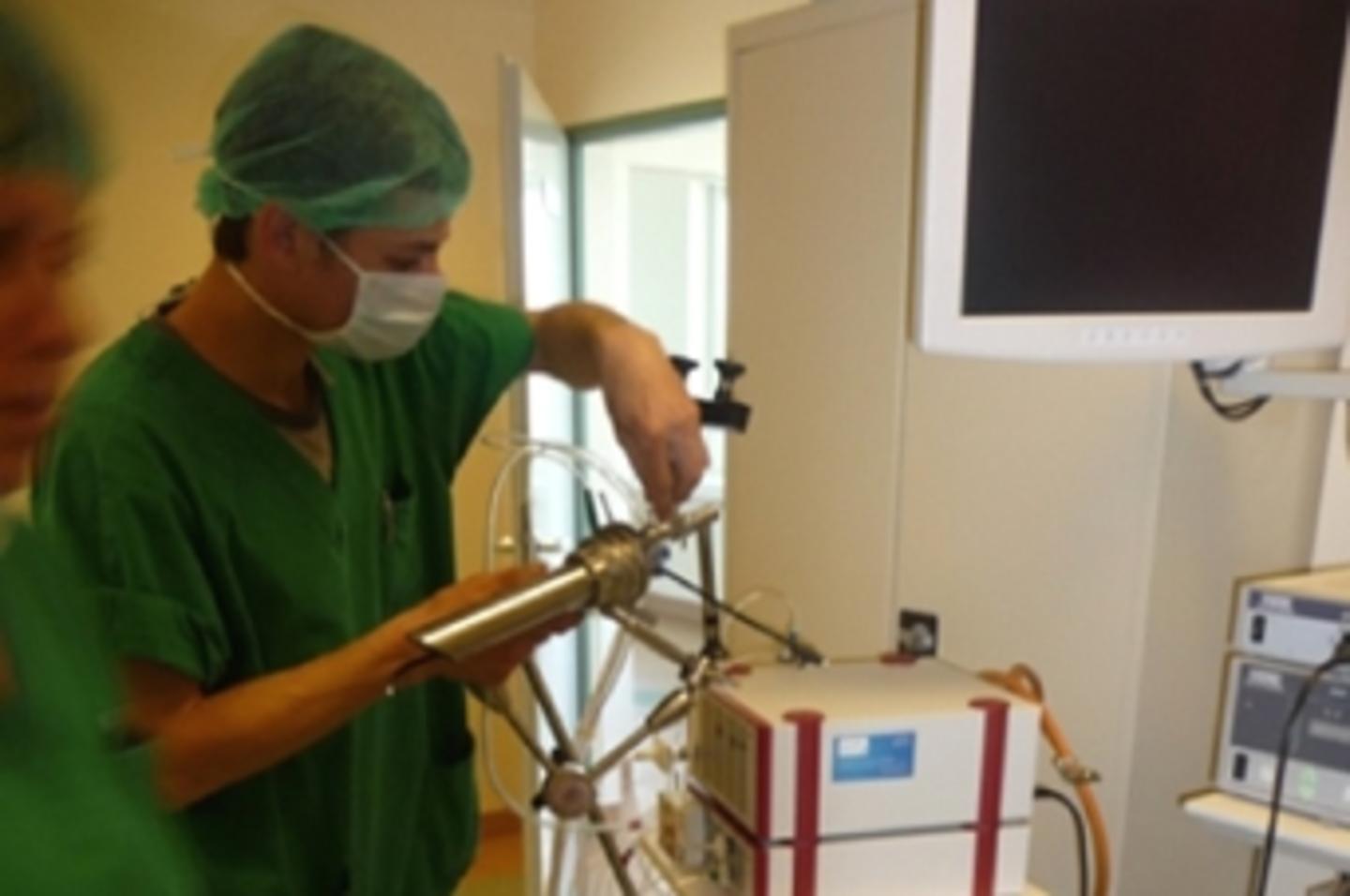3 million people are diagnosed with cancer every year in the EU. It is the second biggest cause of death for both men and women. Lithuania is among the countries battling the highest cancer rates in the EU and half of all malignant tumours are diagnosed in late stages. 16,603 Lithuanians were diagnosed with cancer in 2009. To stem this trend, Lithuania has initiated a national strategy for cancer prevention and is spending one fourth of the EEA and Norway Grants health funding on cancer-related projects.
Nationwide improvement
The most notable EEA and Norway Grants cancer project in Lithuania concerns purchasing key diagnostic and treatment equipment for the country’s six major medical institutions, including Kaunas Medical University Clinics, Klaipeda Hospital and Vilnius University Institute of Oncology. This will bring the Lithuanian hospitals to the forefront of new cancer diagnostic and treatment techniques and significantly enhance their capacity for screening, diagnosing and treating cancer. Several cancer types are targeted: cancer of the digestive system, breast and cervical cancer, lung, stomach and skin cancer.
Focus on breast and cervical cancer
A large part of the support from Iceland, Liechtenstein and Norway is further focused on decreasing breast, cervical and colorectal cancer mortality. Among Lithuanian women, these cancer types account for more than one third of all cancer cases, according to the Lithuanian Cancer Registry. 3422 Lithuanians were diagnosed with these types of cancers in 2009.
At the National Centre of Pathology, which examines tumour tissue of patients at Lithuanian hospitals, three new diagnostic methods have been implemented in a project set to improve the diagnosis of early breast, cervical and colorectal cancer. “The earlier the cancer is detected, the more chances you have to act. With this new equipment, we are able to act more quickly”, Director Arvydas Laurinavičius says. To increase the competence of staff, 14 pathology doctors and laboratory specialists have trained at Oslo University Hospital, Nottingham Hospital and Cardiff Hospital to gain insight from similar institutions.
Another training offensive has been undertaken by the Central Policlinic in Vilnius, the largest primary health care institution in the Baltic region. In one of its EEA and Norway Grants projects, more than 2200 health care professionals working in the field of cancer have participated in training seminars. In a breast cancer awareness campaign the hospital carried out as part of the project in the period May to August 2009, doctors travelled by bus to 200 different locations across the country. Around 12 000 women were examined for breast cancer.
Photo credit: Vilnius University Institute of Oncology
